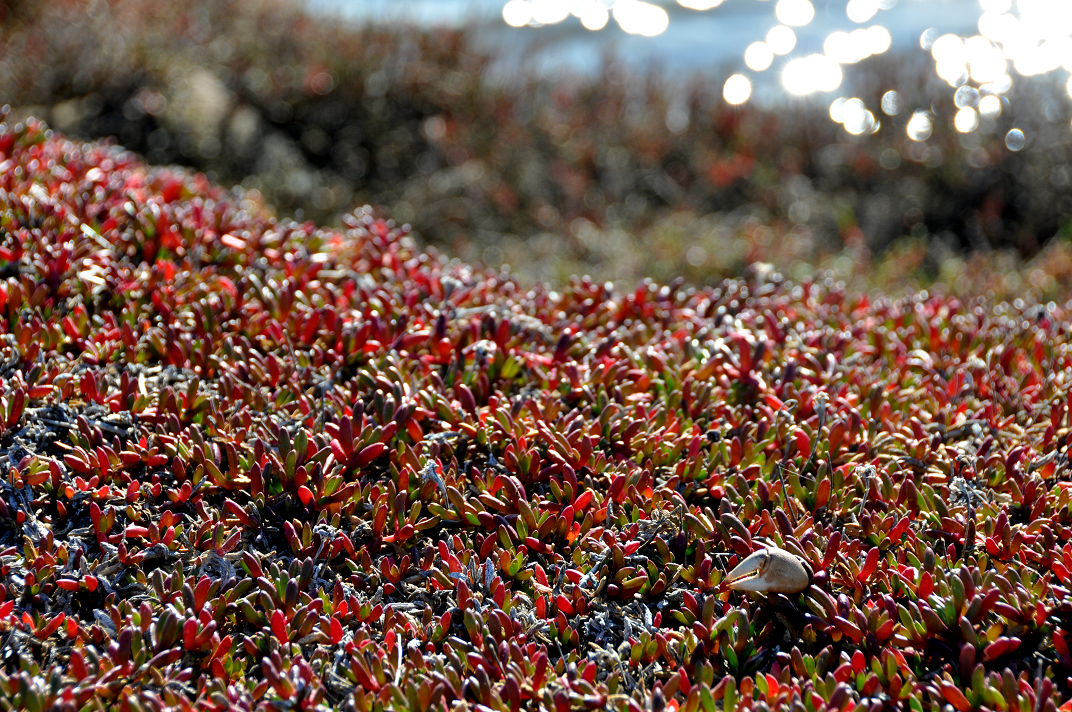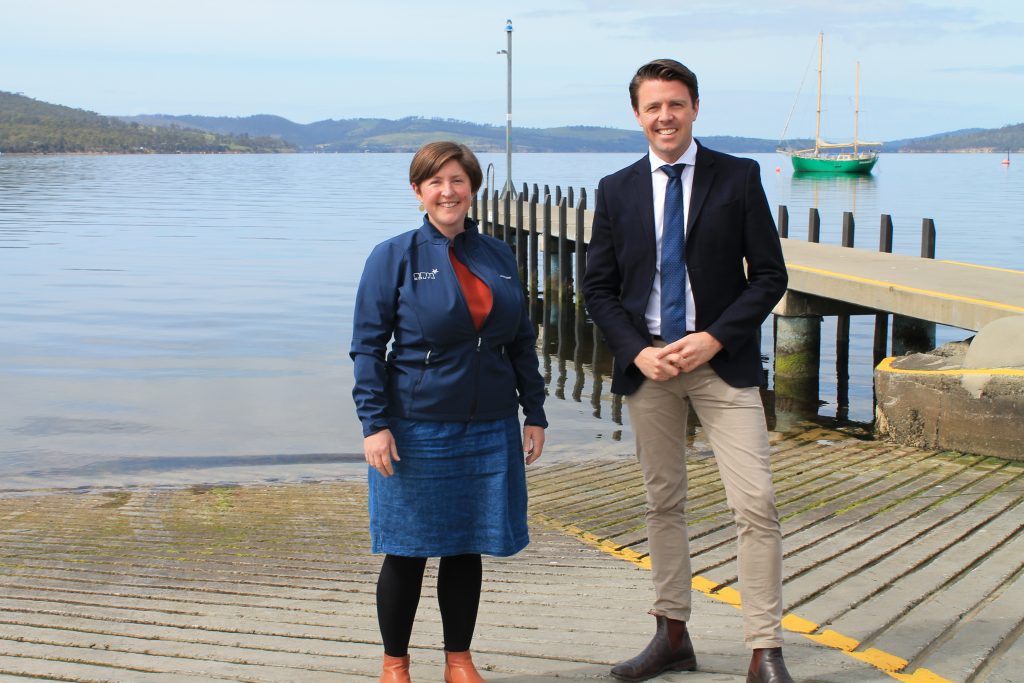NRM South is pleased to announce its success in securing funding to restore fish habitat in North West Bay and Pitt Water-Orielton Lagoon in Southern Tasmania. The funding, announced this week by Senator Jonathon Duniam, will contribute a total of $630K to manage the re-flooding of stranded saltmarsh communities in Pitt Water-Orielton Lagoon and install ecologically friendly mooring systems in North West Bay to restore seagrass communities.
Nepelle Crane, NRM South CEO, acknowledged the significance of this Australian Government funding to rebuild fish habitat in key areas for recreational fisheries.
‘It will enable NRM South to build partnerships between recreational fishers and local communities, land and lease managers, and local researchers’ said Nepelle. ‘We’re looking forward to putting these funds into action on two vital fish habitat restoration projects that will improve the ecological, social and recreational value of our coastal waterways’.
Through these projects, NRM South will work directly with recreational fishing groups including TarFish and OzFish to restore fish habitat and monitor the outcomes. Research partners, CSIRO and the University of Tasmania, will provide scientific rigour to the initiatives. The projects will also be supported by waterway and land managers including Kingborough Council.
Seagrass communities are important nursery habitat for fish and squid, and can be damaged by traditional chain mooring systems, which scour the seabed. Environmentally Friendly Moorings (EFMs) will be installed in North West Bay, and the changes in the seagrass communities will be monitored. These moorings are effective in restoring seagrass habitat, and over the last few years the CSIRO has developed solutions to make it easier and cheaper to install them. It is hoped that as a result of this project, EFMs will become more widely used across the region.

Saltmarsh at Pitt Water-Orielton Lagoon
In Pitt Water-Orielton Lagoon, funding will be used to manage the re-flooding of stranded saltmarsh communities on private land. Saltmarsh is recognised for its role as nursery habitat for recreationally valuable fish species.
Jennifer Hemer, Project Coordinator for NRM South’s Tasmanian Smart Seafood Partnership (TSSP) project, emphasised the importance of working with recreational fishing groups to the success to the projects.
‘Around one in four Tasmanians are recreational fishers,’ said Jennifer. ‘As stewards of the coastal environment recreational fishers understand the importance of healthy and productive coastal and marine waterways. We’re excited to be working with our partners TarFish and OzFish on these projects, which will help improve the recreational fishing experience, valued by so many Tasmanians.’
Assistant Minister for Forestry and Fisheries Jonno Duniam said these projects would benefit recreational fishers by improving the health and productivity of habitats that support fish stocks and fisheries. ‘The two Tasmanian projects are among 28 projects to be funded across Australia under the Fisheries Habitat Restoration Program,’ commented Senator Duniam. ‘This funding will see Regional Land Partnership providers and recreational fishing groups partner in rolling-up their sleeves to directly improve fish habitats.’
This work extends NRM South’s portfolio of marine and coastal restoration projects and builds on the existing Tasmanian Smart Seafood Partnership project, funded by the Australian Government’s Smart Farms Program and delivered in partnership with the Tasmanian Seafood Industry Council. The Tasmanian Smart Seafood Partnership project works with the Tasmanian seafood industry to restore marine habitats and improve outcomes for marine biodiversity in Tasmanian waterways through training and education.
